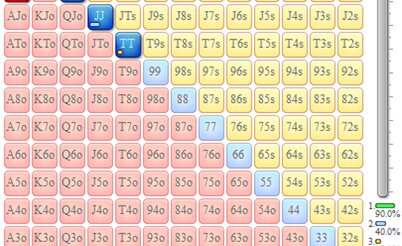– Hi Andrew Zgirovsky! We don't usually ask about the beginning of your poker journey, but you were already at the NL1k stakes when you opened a blog.
How did your career develop before that?
– I’m 29 years old now, and I started playing poker when I was about 20, in my third year at university, although I knew about the game even earlier. I studied at a math school, and poker is just a math game. It just so happened that my friends and I locked ourselves in the classroom and played cash games.
Immediately after school, at the age of 17, I started working as a programmer. By my third year, I already had three years of experience working in several companies. One of the companies belonged to my calculus teacher. But I didn’t really like the work.

At school, I often went to various Olympiads, and I did pretty well. At programming olympiads you have to solve problems, it’s interesting and there’s always some kind of challenge. You can sit and solve one problem for five hours. But at work, you can either google all this, or it has already been done by someone else. Overall, it's pretty boring. It was physically difficult for me to go to the office and I realized that I couldn’t do it anymore. In addition, it was difficult for me to fit into the team. All of my colleagues were much older.
At that time, I played NL5 as a hobby and realized that even there I could win money comparable to work, so I decided to take a risk. Since then, I've been moving up the limits. During my career, I had a lot of breakthroughs, but periods of stagnation also happened quite often.
– What limit did you stay at the longest?
– The transition from NL1k to NL5k was the most difficult. I also had a big plateau between NL100 and NL200 about 6 years ago, then I discovered that you can play not only on PokerStars . It turned out that you can also receive extra rakeback as an affiliate and choose tables. Then things started to happen. I started collaborating with GipsyTeam and had a breakthrough.
– Have you ever regretted leaving programming?
– Seriously, probably never. Poker is a very cool job, albeit an unusual one. I absolutely love the process of the game and the freedom it gives. You have to pay for this freedom with responsibility, but that’s cool too.
What I missed most about my work was dedication. I work well – no one cares; I work poorly – the same thing. Perhaps they will give me some kind of increase of $200, but this is not very motivating. But in poker, you can beat three limits in a year and earn much more.
– It’s funny, many people criticize poker for this very reason – you play, delve into the solver, and in return, you can get a minus-profit month.
– Well, yes, that’s why I switched from MTT to cash. It’s not very pleasant that you can win back many months or even a year in the red, but at high limits MTT, this is possible. Of course, this also happens in cash, especially when you mix the limits, but if you choose the game well, then there shouldn’t be any big problems.
– Did poker influence the kind of person you became?
– Yes very. But age also affected this. I was 21 when I decided to become a professional. In poker, the changes are easy to track. I changed my attitude and approach to the game, so I realized a lot of things about myself and how my thinking works. For example, one of the longest plateaus I had in poker was when I thought I was insanely good, smart, and about to break the high stakes. Actually, I was just lazy. In fact, this was how the fear of failure manifested itself, the psyche tried to protect itself in this way. When I realized this thought, I realized that I wasn't really trying. I accepted that I actually needed to put in a lot more effort. After this, my results improved greatly.
– What was the most difficult thing to correct in your thinking or attitude towards poker?
– In fact, there were many different fixes. It was a long road. When I first read Jared Tendler it was just like, WOW. It turned out that tilting is generally not necessary and that you can play without it. Tilt actually gets in the way.
– So you read Tendler's book and said: “That’s it, I don’t tilt anymore”?
– Not really, of course, but it was a huge breakthrough. I then received a very useful tool for working with tilt, to understand my emotions and reactions. I understood how to edit these reactions and form new ones instead of suboptimal old ones.
I have also greatly improved my organization. I've struggled with laziness all my life. I didn’t do homework at school, but now I had to learn how to do homework in poker. I was able to build a plan and understand my motivation, reduce internal resistance. I realized that I am studying not because I need to get some meaningless grades, but because I am starting to make better decisions, and this brings me more money and pleasure. To do this you need to build a system.
In general, the most difficult thing was to fix psychological bugs. It's valuable to accept one’s characteristics, understand where resistance comes from, why something doesn’t work out, and change previous beliefs.
– Can you give an example?
– The need to stick to a schedule, make a plan and follow it. This has been a huge problem for me for a long time. This goes back to school times when they were forced to attend uninteresting lessons, and the schedule was drawn up by someone else. I even missed a lot of lessons at school thanks to the Olympiads, and it spoiled me. I’m used to the fact that if I don’t feel like it, I don’t do it. In poker, I choose classes for myself and make a schedule, but at the moment it turns out that this is exactly what I don’t want to do. This mechanism had to be changed in order to develop further.
I also struggled with tilt a lot. The main thing here is to understand where emotions come from, and why you are angry. I reacted most to fish and variance. I can still think at the table about what other regs think of me, and how they see my game. This distracts from decisions. It’s clear that you need to think about image at the table, but this should be a strategic interaction – you need to think about how your opponent sees your strategy, and not worry if he thinks I’m a sucker and doesn’t respect me.
– Are there any habits left that you would like to change, but haven't yet?
– There are still problems with forcing yourself to do what you don’t want to do in the moment. Sometimes I skip warm-ups before sessions, which are generally necessary.
– I saw that before the tables you spend an hour studying theory. Isn't that a warm-up?
– Not really, but it’s certainly better than jumping at the tables right away. For me, warming up is about goals for the session – strategic and psychological.
Not everything is going smoothly with the theory hour either – I seem to have developed this habit, but I looked recently and it turns out that I often missed it in December. That turned out pretty bad. What also played a role here was that December is the most profitable month and there are a lot of games, FOMO (Fear Of Missing Out) appeared and I wanted to catch the whole game, but it was not worth it.

– You moved from Cambridge to London, partly due to a lack of poker socializing. How are things going in London?
– I really like it here. In Cambridge, I generally lacked communication, and my friend from school and another from university live in London. We had a company in Minsk and it so happened that almost all of us moved here. Plus, I made a poker friend here, whom I met through the blog.
– You wrote that thanks to communication with another player, you realized that specific small goals work better than abstract ones. This seems like an understandable concept, but are you able to set those kinds of goals?
– Yes and no. This year has been a breakthrough for me, you can say that I have finally gained a foothold in high stakes. Part of the progress is due to this approach. I looked at specific things, for example, the focus was on playing single-raise pots from the SB versus the BB. I studied the theory, looked at how I play in such situations and found mistakes. That goal was to improve the game specifically in this spot, and I managed to achieve it.

– You studied game theory. Tell us exactly how and why.
– Game theory is a branch of mathematics that studies different games. Poker is also a mathematical game with incomplete information. Nash equilibrium is a core concept in game theory, the theoretical basis for what a solver does.
I wanted to make a difference, and playing poker is not easy to do. I thought it would be nice to give some lectures and share knowledge. I had many friends in Minsk who gave lectures as a hobby, and under their influence, I decided to conduct an elective course. I have a mathematical background, so game theory was interesting to me. I read several books and textbooks and created a course based on them. It was more relaxed than regular university courses, with no homework or assessments. It turned out pretty cool, plus, lecturing became a challenge for me since I had no public speaking skills before. The first lecture was full, and by the end of the course, there were five people left, two of whom were my friends.
Then I decided to go to a game theory conference in Finland. I wanted to figure out whether it was possible to do something useful in this area. The short answer is no :) More precisely, in theory, it is possible, but very difficult. At the conference, there were many lectures by all sorts of professors and I stood in line for one of them in the cafeteria. He gave a lecture on cooperative game theory. I thought throughout his lecture, "Does this even happen in life?" It turned out, no. They just study math for math's sake. This is not bad, scientists may research something, and only then find an application for it in other areas. So far, no such application has been found. I went there to be useful, and when I realized that I couldn’t do it, I decided that it wasn’t for me.

– You recently, at least when compared to other high-rollers, climbed through the low and medium-stakes. Can you share some insider information for the regs at these limits?
– I had a bankroll to play at NL5k, but in the UK, gambling is very heavily regulated. You can’t just bring money and throw it into the room; you need to explain where you got it from and prepare a bunch of documents.
I'm not an expert and there are plenty of people who have a better understanding of how to beat the mid-stakes. The general recommendation is to play more for value and call less. If I just play my basic strategy, it will work well and make money at these limits.
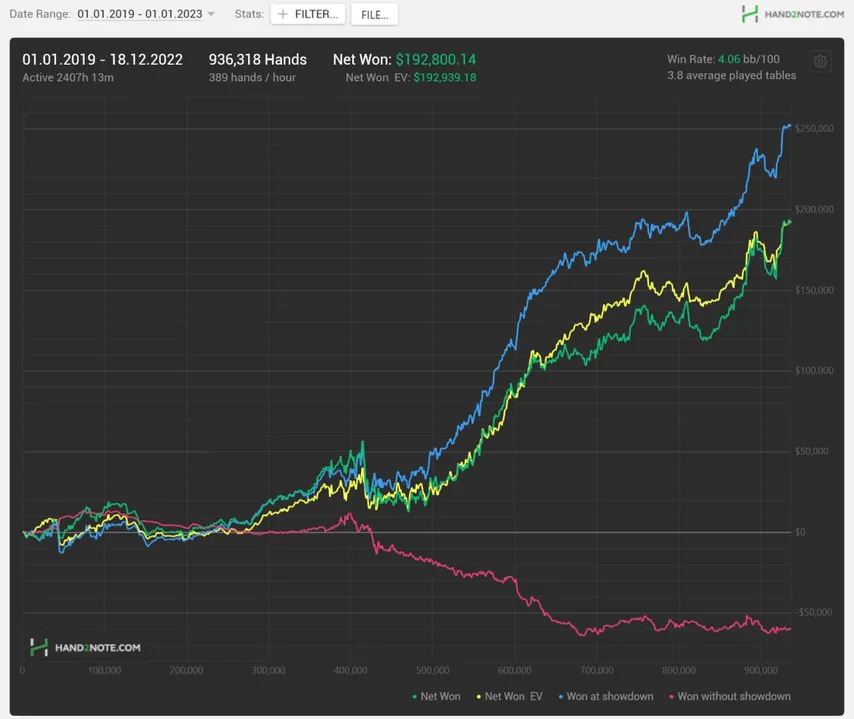
Still, the most difficult thing at low and medium limits is the rake. It's higher there. If the rake is 10 bb/100, then a table of six people loses 60 bb per hundred hands, which means there must be someone at the table who loses more. So selecting at the micro-limits is much more important than anything else. The nuance is that you cannot select on GGPoker, so you have to look for compromises. You can also play Zoom on Stars, but it’s better not to play Zoom anyway :)
– What kind of play styles did you notice among the regulars?
– In general, there's a lack of aggression. If a person doesn't bluff often enough or doesn't play for value subtly enough, then it's quite easy to play against him. Then again, it’s also easy to play against those who bluff a lot. The optimal amount of aggression is shown in the solver. This is a paradox: the field simultaneously calls a lot and doesn’t bluff enough.
NL200 is already a rather difficult limit, so you need to work a lot there and create a fundamental strategy. There were two very cool posts on the forum – one from Stefan, and the other from Truteller. Stefan wrote that you are a fish if you have no strategy. Truteller wrote that it is necessary to build a system for studying the GTO strategies with minimal pain. This post helped me a lot, the phrase “with minimal pain” implies that even Truteller has problems and resistance to learning, and we need to look for ways to make this process more enjoyable.
In general, in order to beat these limits, you need to regularly and effectively study using some kind of system. For example, single-raise pots and 3-bet pots are about equally important, the former are more common, but the latter are larger in size. We do the same with positions. For each spot, we also need to understand what strategy we will have on different types of textures. All ofthis needs to be studied systematically in order to gradually reduce the skill gaps.
– What mistakes do you think regulars make when they start working with a solver?
– I can tell you with my own example. I analyzed the spots in breadth, that is, I understood what the strategy should be on different textures, but did not analyze the spots in depth. For example, I knew that I could donk on this flop and it would be profitable, but I didn’t understand what to do next. It seems to me that the main mistake is that many people adopt solver lines without understanding the big picture and without a strategy. You need to introduce into the game only those strategies that you have already fully understood. Plus, it is important to focus on the most important and frequent situations.
Another mistake I made was to attribute a bad game to a solver. If you need to press call in the solver, this does not mean that it was a good call against this opponent in a particular hand. If you can find your line in the solver with a certain frequency, this does not mean that it is good.
– How do you generally understand the logic of the solver? Let’s say I opened it for the first time, I’m analyzing some A-high board, and the solver shows me some percentages. Now what?
– Typically, solver strategies are dictated by how ranges and equity relate to who has an advantage on the nuts. For example, let's take a board of 653, where 47 makes a straight. If you take two ranges and add 74o full weight to one, it will change the strategy a lot. In a standard BTN situation against the BB, when the blind has 74 offsuit – this is his favorite hand and he always defends them, the strategy will change greatly because the BB will have a large advantage in the nuts. This will allow him to make more aggressive actions, and accordingly, he will have to play in position much more carefully.
I also don’t know how to understand all the thoughts of the solver, but we need to proceed from the fact that everything is dictated by ranges, equity, and the number of nutted hands. Ultimately, in poker, we compare the profitability of actions and the solver does the same. It simply compares the EV of which decision will be higher, and we are trying to understand why in a particular spot the EV for betting will be higher than the EV of a check.
It's kind of a mess, to be honest. I myself would like to know a clear and precise answer to this question, but I don’t have one.
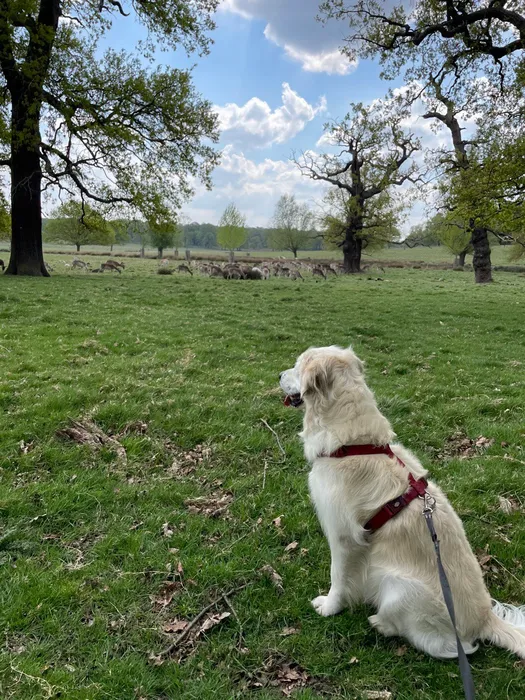
– You’ve taken a lot of poker courses, can you tell us about the most useful ones?
– For me personally, the most useful course was the A-Game Masterclass from Eliot Rowe. I passed it three times, and now I decided to go through it for the fourth time. It's about the approach to the game and the moments around poker.
I would divide poker skills into direct technical knowledge and the ability to obtain this technical knowledge, like psychology. Also, there's the ability to reproduce a strategy, the ability to resist tilt and remain motivated. Then there is professionalism, meaning is bankroll management, selection, networking, discipline, and scheduling.
Poker skill is 50% technical skills, 25% psychology, and another 25% professionalism.
But if in some areas you have 0%, then the total will also be zero. The technical part is still more important, because if we don’t know what a 3-bet range looks like against the button, then we can do yoga and meditate as much as we want, but it won’t help. Nevertheless, all the aspects around poker are important, and the A-Game course helped me a lot to advance in them.
Advanced Cash Game Strategy from Kanu7 is another important course for me. It came out in 2018 and helped me greatly in creating a basic strategy and understanding GTO. It used a specific solver, but I spent a little time figuring it out, and it seemed quite convenient to me. The course gave me a big boost in my game.
Funny moment: Thanks to this course, I built a good strategy in single-raise pots at 6-max and, to develop my skills, and for fun too, I went to play heads-up at NL500. I extrapolated my strategy from 6-max and played it there. For example, I used pot bets on the flop often (not a very common strategy). The regulars accused me of using a tipster. It was nice :) They had no idea that someone could go beat other regs heads-up just for fun. Then people realized that if I had a strategy in this area, then in other places I have huge leaks, and they can make good money from me.
Elite Cash Game Exploits from Uri Peleg is also a super important and recent course. It was a breakthrough for me. While communicating with Ilya KARACHEVSKII , I realized that I was pretty bad with exploits, and the course helped me patch up these holes. I realized that strategies can often be changed, andthat they are generally very flexible. There is a lot of discussion about the need to think more broadly, to try to understand what is happening at the table. Moreover, exploits and GTO are generally very related things. GTOs are exploits that converge to the point where they can no longer be exploited. My understanding of answers, after I tweaked something in the strategy, improved greatly after the Uri course.
I bought a heads-up course with Kevin Rabichou on Black Friday, but haven't gotten around to using it yet.
– Have you come across courses you regretted spending time on?
- Not yet. But I try to be careful when choosing. Those courses I just mentioned have paid for themselves many times over. It would be difficult to come to these ideas on your own.

– Last year you had to go down to NL200 due to problems with deposits, but then you lost decently. Did you manage to play limits 5 times lower than usual at full strength?
– The downswing was about $100k. At the beginning, it was difficult to play. When you come to a lower limit, it's hard to shake the feeling that everyone at the table owes you money simply because you decided to sit with them. Of course, it doesn't work that way. NL200 is already played quite heavily, so you need to think actively there, plus the rake is high. To win, you have to play well. This is also a skill that needs to be learned. The scheme here is generally the same as with external thoughts that distract from the strategy. You can also use it when playing a new limit and it helps you focus on strategy.
Even during streaks, it helps to realize that I can still do some things well. Recently, I lost it due to another downswings, and this is an alarming sign, it’s time to work hard and find out exactly where the problems are, andwhat I’m doing wrong. Downswings are often associated with more than just bad luck.
– How do you realize that you find yourself in such a state and what exactly are you doing?
– The simplest thing is to load your hands into GTO Wizard, there you can compare your game with the solver and find out in what situations you make mistakes. Perhaps these are special deviations because I am playing with an amateur or a familiar reg, or perhaps I am just playing poorly. Over the past month, I have accumulated quite a lot of such errors. That is, I literally play poorly and make the wrong decisions. This means that I either do not have enough knowledge, or the ability to reproduce it, or it could be problems with psychology (but this is more complicated). It is important to assess your condition and understand what the reason is. The best tool for me is to record my session with commentary on video. It is sometimes very unpleasant to review them, but this is not necessary – the recording process itself is already very revealing. You can track errors in thinking, see at what moments I begin to swear at my opponents, and then work on them more carefully.
– Relatively recently you made a shot at NL40k. Was this planned or did you just see fish and decide to take a chance?
– To be honest, it’s more likely the latter. I saw an amateur and thought – well, okay, I can lose a couple of buy-ins, which was approximately the stop loss. In terms of what limits I can play, nothing will change. After the fact, I realized that this was not worth doing, so now I will be more thoughtful about such shots. I made a survivor's mistake here; before this, I was pretty good at taking shots, so I believed in myself too much. For high stakes, you need a different BRM, since there is not enough game. If I play NL25, I can find myself eight tables at any time, and at NL50 it will be the same. But at NL40k, the game happens very rarely and it’s difficult to get into it; you need to either hold the tables or carefully monitor the lobby. Therefore, if an opportunity arises, you want to take advantage of it. In general, the opponents are similar, and the amateurs are still amateurs, so the anticipation in such games is good. But still, now I understand that I made this shot in vain.
– How did you understand this?
– Probably the main criterion is money pressure. I noticed how these thoughts began to distract me, which means that decisions at the table will not be made optimally, and EV may be much lower. Plus if I lost those few buy-ins, it would be pretty painful for me. I jumped back but realized that it was optimistic.
– I think most regs do not play these limits on their own, maybe this is the solution?
– Yes, at NL40k it starts to make sense, but I’m used to playing on my own bankroll and don’t want to change that. I want to grow my bankroll. Moreover, why play NL20k from the backer if I can play NL10k from myself and have approximately the same expectation?
– Until the beginning of this year, your high-stakes adventures cost minus $100k in just a few attempts. Why do you want to play high stakes? You can play NL5k and focus on showing the highest win rate there, for example.
– High stakes is a competition, very interesting, and intellectual. There is much more money there, which is also an important factor. The expectation is very high, especially if you encounter a good amateur. In one game, in a couple of hours, you can get a profit comparable to a month at NL1k.
– Do you have global poker goals besides high stakes?
– I definitely don’t set myself the goal of becoming the best. I have a goal to become a strong high-stakes professional, that is, to rise a couple of limits higher.
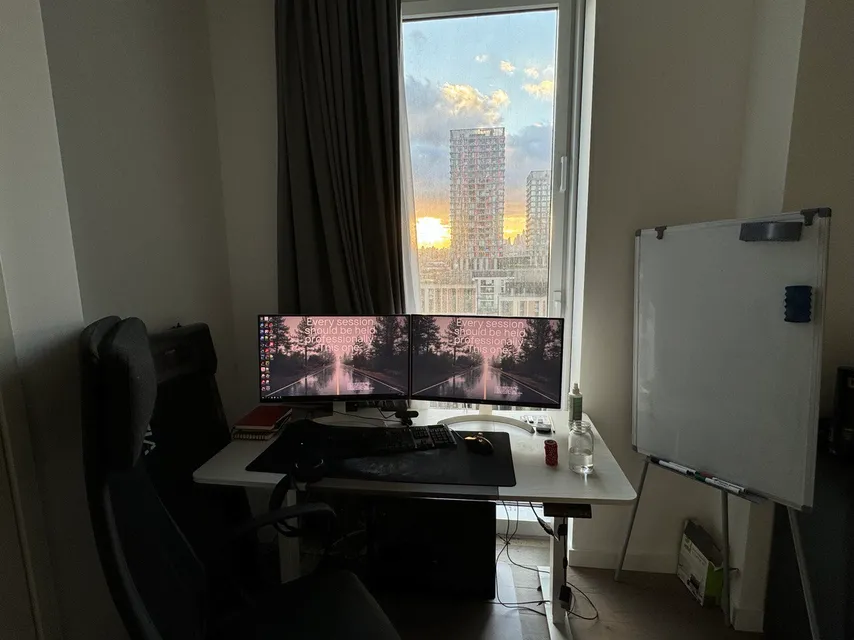
– You wrote that psychology is your strong point. Has it always been this way?
– The fact that I wrote this does not mean that it is so, although, at that moment, I probably really thought so. At the beginning of my career, I was a typical fish, but then I read Tendler and things became better. In general, I have the right temperament for poker; I am calm and reasonable, plus I have a mathematical background, so it always seemed that it should be easier for me to make decisions and not be distracted by emotions. I still experience emotions, although thanks to my first reading of Tendler, I had a breakthrough in this regard. Then I read it a couple more times, always finding something new.
– You have written more than once about “samurai mode.” What is that?
– This is how I defined the internal state that I want to experience when playing poker. A state of flow, when I am completely involved in an activity, it absorbs me, so I am focused and enjoy it. I have exactly the skills that are needed, and I use them. I'm getting a return. I don't feel negative emotions. That is, these emotions arise, but I can track them as if I were above them. For example, I feel it is a shame to lose to an amateur, but I am aware of this emotion and it does not prevent me from making rational decisions. This is roughly the state.
– What helps you achieve it?
– What helps, first of all, is a conscious desire, that is, an understanding that when I play poker, it should be this way. By default, unfortunately, you automatically slide into a state of low concentration.
Tracking your condition works well. I often evaluate my sessions by the quality of concentration, directly in points, from 1 to 10. I analyze sessions in which concentration is low, trying to understand what interfered. Very basic things – there should be no distractions during the game; if YouTube is open in the background, it means that everything is already bad, and you need to either close or terminate the session.
The physical condition also greatly influences it. If you don't get enough sleep, it becomes very difficult to maintain concentration, and you get distracted much more easily. So good sleep is the base. Sports also helps a lot. Personally, I’m also used to coffee; if I don’t drink a mug, it will be difficult to play at maximum. You should also not forget about water. In general, very simple things.
– What could cause you to lose your temper?
– When I force myself to play or sit down to work because it’s necessary or I’m used to it, although my condition is not very good. For example, I didn’t get enough sleep and immediately sat down to play.
If I had a difficult, unsuccessful session yesterday, I bluff-catch more, and run into the nuts. You bet three streets for value, and there are the nuts again. When you look at such concentrated bad luck over and over again, it can still unsettle me, although ideally, it shouldn’t.
– What do you do when you have had no luck the whole session?
– Ideally, if I feel like I’m in bad shape, I stop playing and go to rest. Or I can take a short break and try to recover. In the A-Game course, which I advertise so much, there is a good idea – to do an A-Game check-up, that is, make a list of questions that allow you to assess your own condition right now. How do I think about strategy, am I worried about anything right now? And if it is clear that the condition is bad, then you just need to stop the session and take a break. Maybe try again tomorrow or study theory for the rest of the day.
– Are there any downsides to such a strategy? If you stop the game every time you leave the ideal state, won’t the sessions become shorter and shorter over time? Isn't it more profitable to upgrade your B-game so that it becomes less flawed?
– Well, yes, that’s how it works. If you stop the session every time something goes wrong, you’ll only play about 40 hours a month. Here, you need to look for a balance, determine the minimum acceptable state, and correct behavior when it deviates from it.
Simply stopping the game is really not very productive and you need to figure out what the problem is. When I take such a forced break, I try to correct the way of thinking that led me to this suboptimal state. Thanks to this work, it occurs less often. Ideally, when I'm in good shape, I can track my thoughts and emotions for long periods without them distracting me or putting me on tilt. Being in this state, I can play for a long time without breaks, because I have already worked through most of the things that previously unsettled me.
– Can you give me an example of how you corrected harmful thoughts? Let's say you run into the nuts 5 times or even 20 times.
– We need to understand what exactly is happening. Am I running into the nuts but still making the right moves, or am I just choosing the wrong moves? It may turn out that I have the wrong beliefs, for example, strategic ones – if I have a blocker, then I should always bluff. So, I make extra bluffs, get called, and start to get caught up. Or maybe I’m doing everything right, that is, the strategy is good, it just didn’t work out. If the problem is that we are doing everything right, but getting a bad result, then we need to convince ourselves that this is part of the game and poker works that way It is important to make the best decisions, but sometimes they do not lead to positive results. This is the best we can do and in the long run, if we make the right decisions, we will win.
– Do you have problems with motivation, and how do they usually manifest themselves?
– There is a lack of motivation for learning. It always starts to feel like my strategy is already good enough and I don't need to learn anymore. This year, I almost managed to beat it. Usually, the cycle is like this: it seems to you that you are good enough, and there is no point in delving into theory. Because of this, a downswing inevitably occurs, because in reality you are not that good, and there are still a lot of things that need to be corrected.
Problems with motivation also arise when training does not bring results. This may be because it’s not working out right now, that is, I studied something, but got into a bad situation and didn’t earn any money. Perhaps in training, I do something ineffectively and work on it, but it does not improve my game. It's always worth making sure that training is helping. This is where I still have problems, I haven’t fully figured out how to solve them.
It seems to me that for training to be effective, a system is needed. If you analyze random spots in a random order, then there will be no sense. You need to systematize your knowledge. I write notes, which help formulate clear conclusions after analysis. Without them, there would be nothing left in my head.
– Are you only taking notes on theory?
– In psychology too – I evaluate the sessions played and my mindstate along the way, then I write down the thoughts that came to my mind. Next, I evaluate what was right and what was wrong. This year, I wrote 500 pages, so I take notes quite actively :)
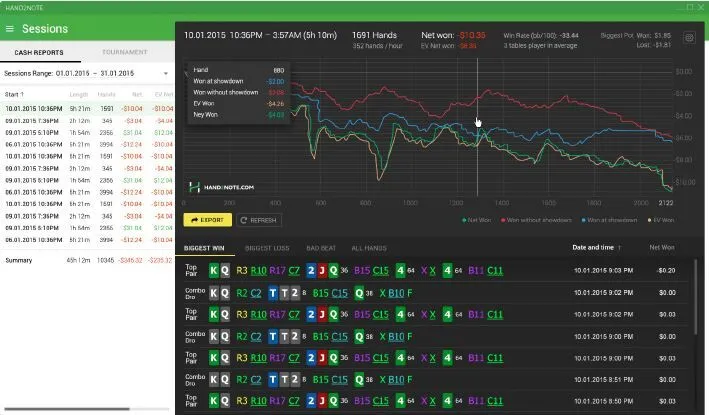
I also write down my plans. I break the year into four blocks of about 3 months each and make a list of what I want to achieve. Overall, it's a pretty clear concept. A year is a fairly long period of time; if you set a goal at the beginning of the year and something doesn’t work out, you can give up on it. It is better to break the year into smaller periods so that if something goes wrong, you can re-analyze everything, understand what was wrong, set more realistic goals, break them into smaller ones, or formulate them better.
– What goals have you set for the current period?
– Goal 1. An hour of theory every working day.
There are still problems with this, but I'm already pretty close.
Goal 2. Update strategy in 3-bet pots BTN vs BB and SB vs BB.
There was an idea to evaluate the results using the GTO Wizard, where you can play against the solver in specific spots. I wanted to measure at the beginning and the end. So far, the system is not working very well, because I seem to have learned a little more, but the results have gotten worse. In general, there are questions about their calculation system. But in theory, the idea is not bad.
Goal 3. Take the A-Game course again, which lasts 6 weeks.
Goal 4. Work on emotions. Become aware of and process negative ones and look for positive emotions in the game, emphasize what I like, what I do well, in order to have more fun.
– Like “Oh, how well I just bluffed”?
– Yes, something like that.
– Isn’t this a way out of the A-game? Isn’t this the same as “this dude is 3-betting me for the third time because he doesn’t respect me”?
– I don’t know, but maybe. This is nice and boosts confidence, especially if it’s to the point – I’ve studied some spots and understand well how my opponent’s range works, so I bet a profitable bluff. It seems to me that in such a situation it is good to be happy.
– How many three-month periods have passed for you?
– Quite a lot, I’ve been using this system since 2021.
– What is your approximate percentage of achieving these goals?
– To be honest, it’s quite low. When I began to set more realistic and less ambitious goals, then they began to be better achieved.
– You wrote that you used to have problems with other games and could get stuck there for the whole day. How did you deal with this problem?
– I read a book about habits and deleted the games. I consciously realized that, for me, the game is poker. If you can do something useful and get as much pleasure, then why not? When I play something else, I have fun, I'm immersed in the process, but it's all escapism. If you look at it, it would have been better to play poker at that time. Poker can be difficult, but you need to learn to cope with this complexity.
-What did you play?
– Civilization and Humankind; I like strategy games. When I was a kid, I played WoW almost non-stop. I even wanted to eat less than to play. I realized that this was a wake-up call and deleted the application. Removing the willpower factor is a pretty good way, I think.
– Doesn’t something else appear in this case, like YouTube or something similar?
– Well, yes, that’s what happened to me. Now I spend more time on YouTube than I should. I don’t know how to deal with this yet. I have some ideas on how to shift the focus to something more conscious or useful, but in reality, it is not yet possible to implement them.
– What activities, besides poker, do you find useful?
– From a simple point of view – in London there is a lot of relatively useful entertainment, now I often visit theaters. This is also entertainment and relaxation, but it is planned and when you go to the theater in the evening, you won’t be able to stick to YouTube. I read books before bed, and more or less, it works. I also started playing chess and tennis.

– Can you share your typical workday schedule?
– Now my schedule has shifted a little and this month I started getting up a little later. I want to fix this, but now it’s the Christmas holidays, and my friends are also going to come, so I’ll wait until January.
Overall, a good schedule went something like this. I get up at 7 am, come to my senses about an hour later – have breakfast, and do exercises. From 8 to 9 I study theory, then I play a short session and go for a walk with the dog. After that, I sit down for another session and have lunch. After lunch, I go to bed. This is my standard routine. A nap during the day allows me to reboot because after the first half of the day, I am quite tired. If I sit down to play further, I will not play well. But when I sleep, it’s like a new morning begins for me. I usually sleep for 30-40 minutes, sometimes if I don’t get enough sleep, I can sleep for an hour and a half, but definitely no more. Then I launch another session for 3-4 hours.
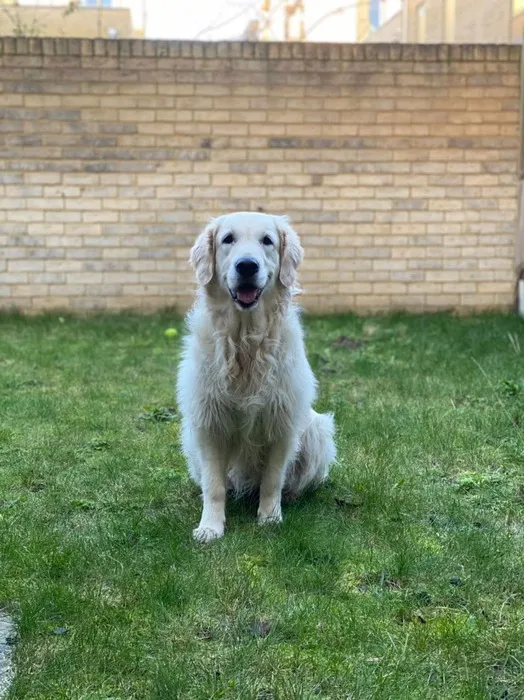
– You wrote that concentration and focus are choices that need to be worked on, just like physical fitness. How do you work on this?
– Once a conscious choice in favor of high concentration has been made, it needs to be monitored and quality assessed. The process is to evaluate yourself after the session – at what level of concentration you had. Brdz1 maintains a cool blog and constantly evaluates the quality of concentration after a session. This seems to me to work very well.
You also need to understand why concentration fails, why you want to be distracted, and why you lack focus.
– Do you warm up before the session and cool down after?
– An ideal poker process should have both. For me, warming up is about getting into a fighting state, remembering my strategy goals, and thinking about what spots I’m working on and what mistakes I might make. It is also worth remembering your psychological state.
During the cool-down, you can evaluate how the session went, understand whether there were any mistakes, maybe quickly analyze the hands, and assess your psychological state. If tilt occurs, then think about what factors led to it.
– You travel quite often, how do you get back into the game after breaks?
– It's usually pretty bad. I feel like my form gets lost and then it’s hard to restore it. I have accumulated ideas on how to do this correctly, but in practice difficulties arise.
Ideally, you should first study the theory, play fewer tables, and not rush into the game. It also helps to record the session on video and actively analyze the hands to understand whether I’m playing in the right direction. But in practice, I always want to get back to poker as quickly as possible; after a week's vacation, I start to miss the game. In general, this is not very good, especially in terms of results.

– You wrote that you were trying to figure out what you wanted to do after poker – what areas were you considering?
– To be honest, now I’ve stopped thinking about it. Looking back at my poker career, I realized that the idea that poker had two years left was really holding me back. It turns out that I was not completely into poker and I thought it was a temporary job. I thought that for quite a long time. Without these thoughts, I would have developed much faster. It wasn't a long-term and thoughtful strategy, but it's that feeling that I need to earn more money and that’s it. It gets in the way. I don't think feel that way now.
I don't think poker is going to end anytime soon, so I plan to continue playing for the foreseeable future.





















